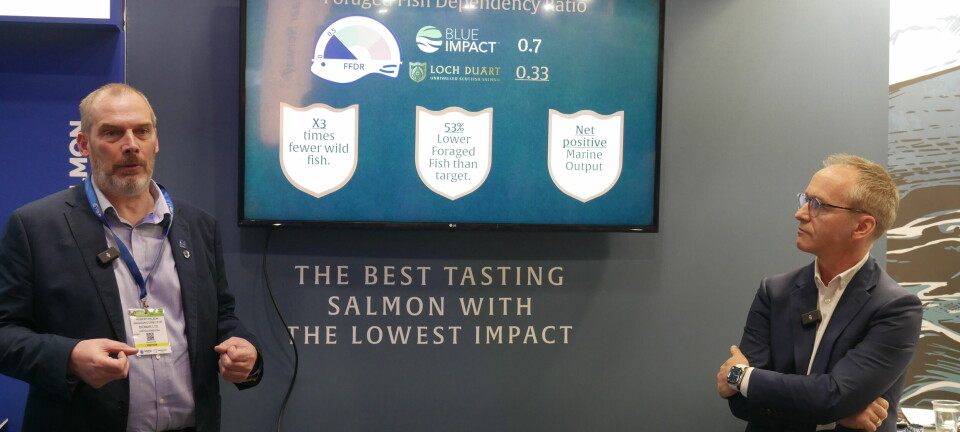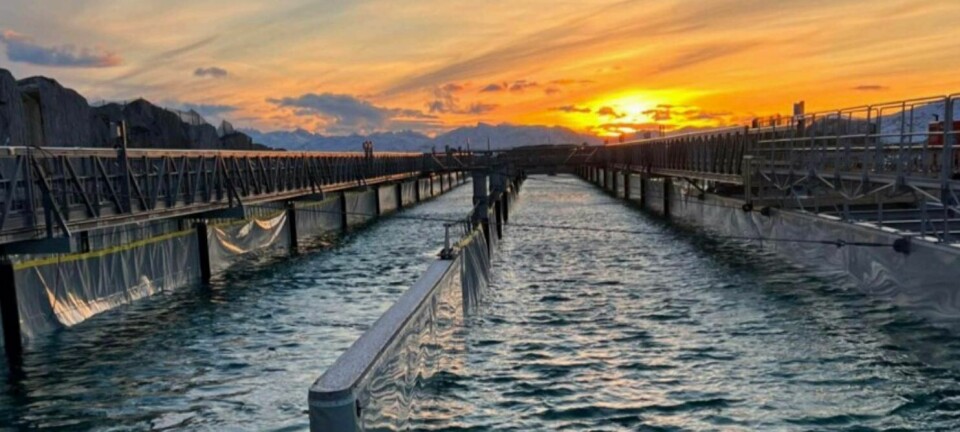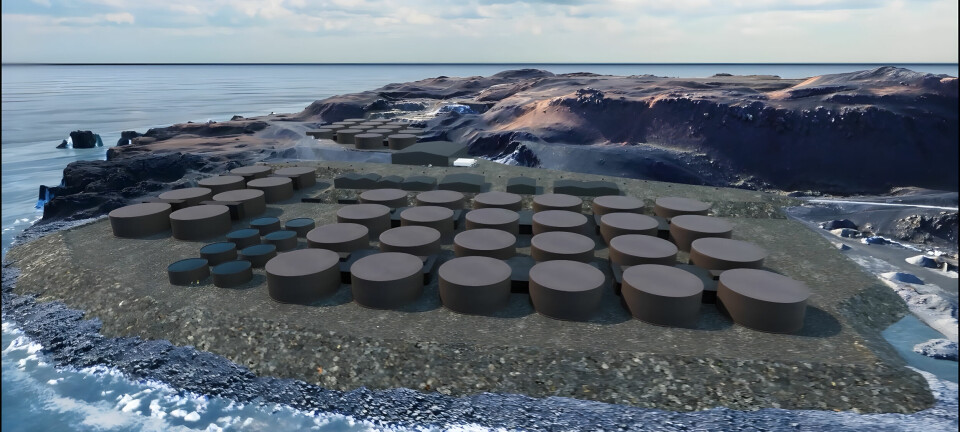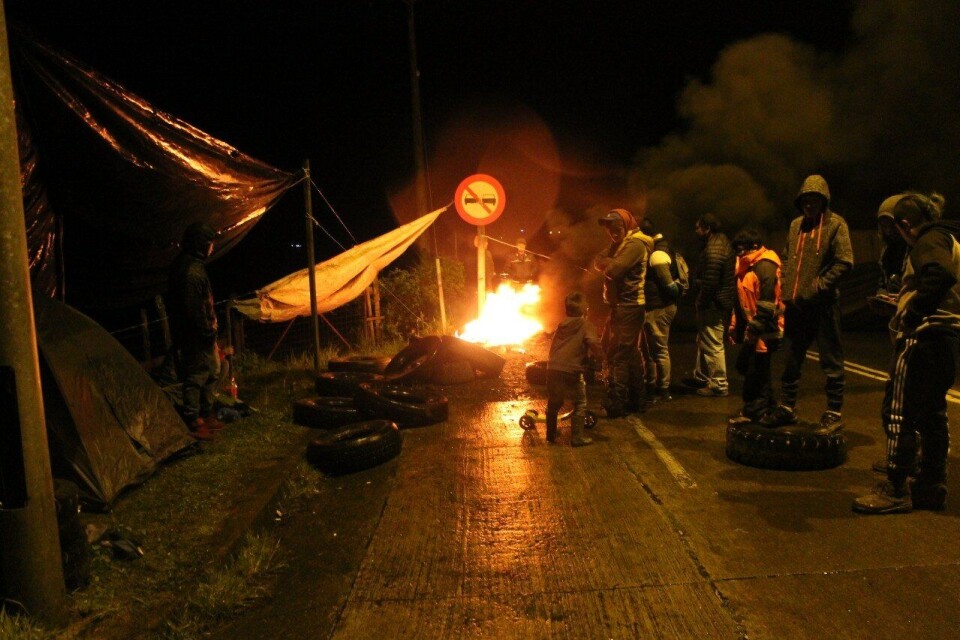
Shutdown continues at Chile process plants as protesters evict workers
Salmon processing plants in the Chilean city of Quellón continued to be shut down today because of countrywide unrest prompted by anger about growing inequality.
The shutdowns come in the middle of the high season for harvesting salmon, particularly coho. Quellón is the processing hub for Chiloé Island in the Los Lagos region.
Plants run by AquaChile, Marine Farm and Salmones Austral were among those where the threat of damage by protesters prompted closures yesterday. In some cases, workers have been pressurised by protesters to stop working.
Waiting for calm
Gastón Cortez, general manager of Salmones Austral, told Fish Farming Expert’s Chilean sister site, Salmonexpert.cl, that “we were not operating because we saw the risk involved in carrying it out, before entering that night shift”.
He added: “The companies in the area are not active, waiting for everything to calm down and for the road to San Antonio, which is blocked by protesters, to open.”
Cortez said: “This situation is quite critical, since we are in the middle of the high harvest season of coho salmon, mainly, so it would be convenient that this moment the country is experiencing will end in the best way for everyone. We will try to restart production at our plant in the area as soon as possible.”
Plants paralysed
AquaChile said that after the incidents that took place in Quellón in different salmonid processing operations, “the company kept the plant closed for security reasons”.
Francisco Muñoz, the ministerial secretary of the economy for the Los Lagos regionsaid that “there are a total of three salmon processing plants that are paralysed, belonging to AquaChile (formerly Los Fiordos), Marine Farm (former Marine Farm Tornagaleones) and Salmones Austral (called Pacific Star). The dialogue between the different actors of Quellón is being promoted, and in fact, [salmon growers’ association] SalmonChile is currently leading this aspect.”
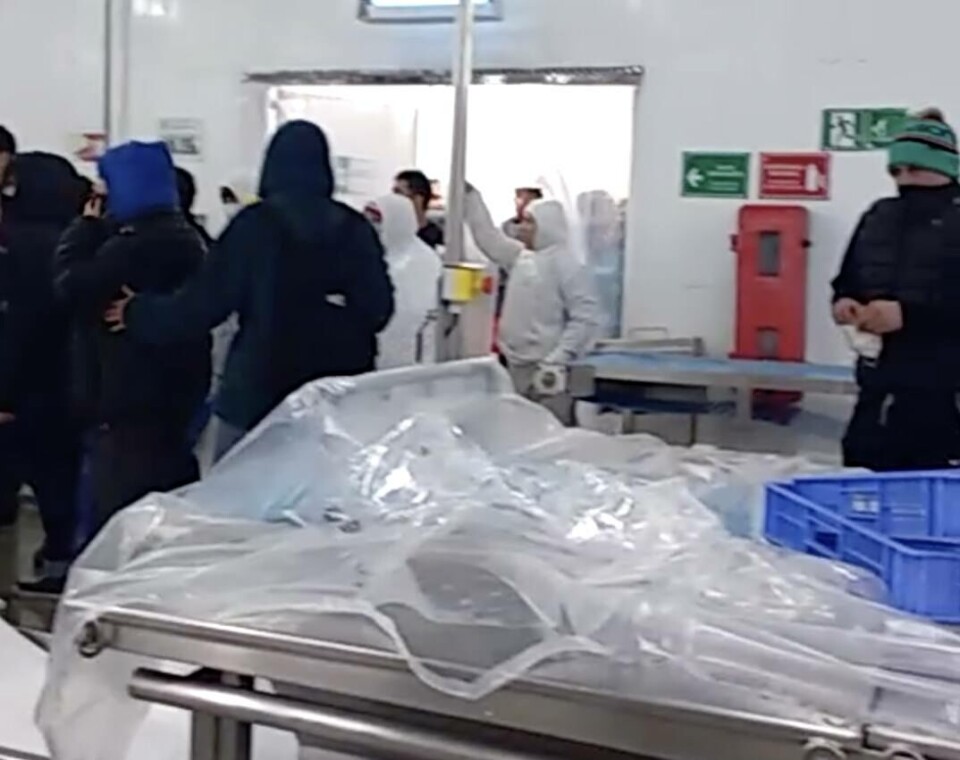
Muñoz also pointed out that the stoppage of process plants in Quellón is one of the protection measures taken by the local industry itself in the face of mobilisations led by workers who have nothing to do with the companies that operate in the area.
Call for prudence
“Yesterday’s is the first direct intervention of demonstrations in salmon processing plants, interrupting operations, but last week the industry had already been affected by logistical issues, with delays in export processes, which means loss of contracts and products,” said Muñoz.
“That is why we call prudence in these mobilisations, where although social demands are understandable, they should not affect the workers themselves.”
Union official Marta Oyarzo, spokeswoman for the National Coordinator of the Salmon Industry and related branches, said that “the situation is complicated in Quellón, because we have received threats of taking the process plants by force, therefore there are no guarantees to continue working”. As such, the companies in the area would continue to be shut today, “until further notice”.
According to Oyarzo, the affected companies include not only AquaChile, Marine Farm and Salmones Austral, but also Yadran, Surprocess, and Salmones Cailín.
Quellón Salmon Federation
Some protests have been led by students and members of the Quellón Salmon Federation.
One of the plants which the protesters were able to enter and, effectively, get the workers to leave their posts, was that of Marine Farm. Carolina Obreque, president of the Ganamar Union, said the action of the protesters was wrong “because the fight is against the Government, against the Constitution that is wrong, against laws that are wrong, but not against people who are our own neighbours”.
Obreque added: “The people here are going to be out of work, I do not understand what the goal is of the people of the Federation, who are supposed to represent the workers. Their base (membership) wants to work, they want to have their salary at the end of the month, since they have families.”
No plant in Quellón working
Protesters also arrived at the Yadrán plant, where the shift entered at 12:00 hours and at approximately 01:00 hours there was an attempt to evict them from the plant. Eventually, 70 people who arrived to work at the plant went home.
Finally, the protesters arrived at the AquaChile plant (former Los Fiordos), where at that time of the morning, there were only a few people guarding the place. “The [company’s] warning was that if the roads were blocked, people had to return to their homes, because they were not going to risk the physical integrity of the workers,” said the president of Union No. 3 Exporting Los Fiordos of the plant, Sandra Barros.
“At the moment, no plant in Quellón is working and I understand that as long as the roads do not return to normal, people return to their homes, that is the company’s policy. In case the roads are replenished, people return to work the corresponding shift.”
Barros added: “What I would expect is a conversation with the industry from the unions that are attached (to the protest), and that they make it clear what they want from the industry. As long as we do not have a clear request and demands, this will not work.”
